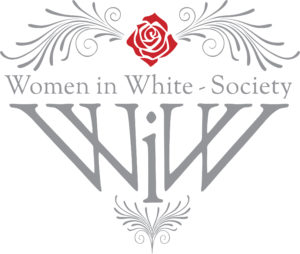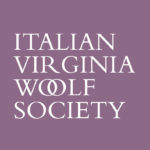In ‘The seeker of forgotten stories’ the writer Ester Rizzo tells of her day spent bringing to life the lives of sisters who lived in other centuries. Palermo, Italy, December 2019.
It’s a December morning with a clear blue sky and warm sunlight. One of those winter days that only the lands of the south can provide. I’m walking quickly through the streets of old Palermo and occasionally I raise my eyes to admire the ancient palaces that follow one another along the way. I would like to linger longer on these buildings that fascinate me but I am in a hurry. I have a mystery in my mind and heart that I hope to solve by looking through documents at the City of Palermo’s Historical Archive, housed in a former convent from the 17th century. I have travelled many roads of paper and ink and met hundreds of women in unfamiliar lands and in centuries before my time. I have fed on their stories, I have drunk their tears. I have felt their chills on my skin and thrilled at the bravery and passion of their struggles.
The shreds of the lives of so many women
Despite my immersion in the noises and stress of hectic and troubling days that are born and die so quickly, I’ve worked to collect, with infinite patience and so much love, the shreds of so many women’s lives. I now feel they are my sisters. Today, I intend to look for the stories of the Sicilian women who opposed the human tragedy known as the First World War. They protested vigorously, marched and rebelled, and were arrested for their daring. Sadly forgotten stories, of which almost no one speaks and whose traces have been lost in the fog of passing time. I’ve arrived at the Historical Archives, and as I am walking through the heavy door the world changes. There is a vague hint of damp, the smell of ancient books and documents. The craving that I know so well, the craving for the knowledge research can reveal, takes possession of me.
I go back in time more than a hundred years and pull out my inseparable notebook, where I carefully enter names, dates, and locations.
The Ancestors
Seeing the worn leather of my faithful notebook makes me smile. No technology has been able to replace it. But I’m like this – while I’m able to move nimbly through the sea of the internet, my notebook and my hand-written notes are part of me. I don’t intend to abandon them. I start my search. The space kindly made available to me begins to fill with bundles of papers, documents, files in ancient handwriting sometimes almost unreadable. I’m in another world, immersed for hours in those documents. I find names and I seem to see my ancestors, almost all dressed in black, with shawls covering their heads. They are walking through dusty streets filled with rubble, exhausted by that useless war that has brought even more poverty and misery, and savaged their loves, affections and children. But they are aware that they have to act, protest, to make their voices heard: it’s as if a black-and-white film is unrolling before my eyes.
Here is Maria Segreto
Finally, I find the name I was looking for: Maria Segreto. My heart leaps – I’m seeing her, very young with fiery eyes and long black hair. She’s talking to other women, she’s inciting them to rebel, to not passively accept the flood of violence and death being inflicted on those they love. I start comparing dates and data, jotting down places and circumstances. I feel neither thirst nor hunger nor even the damn desire to smoke a cigarette. I entered a lost world where I’ve never lived. Nestled among the old papers and with my hands in my hair, I’m completely startled when a kind voice tells me that the Archive is about to close, that I can return the following day to continue my research.
I collect my things and marvel at how fast the time has gone by. I go out through the huge old door and find myself in the faint light after sunset. I’m on my way back. Tomorrow I will continue my research, I must bring to light the voices, hopes and protests of these women that no one remembers anymore. I have to tell their stories. I will have to walk long and forgotten roads on which, I hope, I will collect small, bright flashes to give back to our collective memory.
 Ester Rizzo.
Ester Rizzo.
From Licata, a law graduate, has a specialization diploma from the Ist. Superior of Journalism in Palermo. She is co-referent for Sicily of the Women’s Toponymy Association and teacher of the course on Literature for Women at CUSCA (University Social-Cultural Center for Adults) in Licata.
 She is the author of the books: Camicette Bianche (2014), Le Mille. I primati delle donne (2016), Le ricamatrici (2018), Donne disobbedienti (2019), all by Navarra Editor
She is the author of the books: Camicette Bianche (2014), Le Mille. I primati delle donne (2016), Le ricamatrici (2018), Donne disobbedienti (2019), all by Navarra Editor
The cover image is taken from anpicata
Translated by Cettina Callea
Reviewed by Syd Stapleton
You can send your story here








